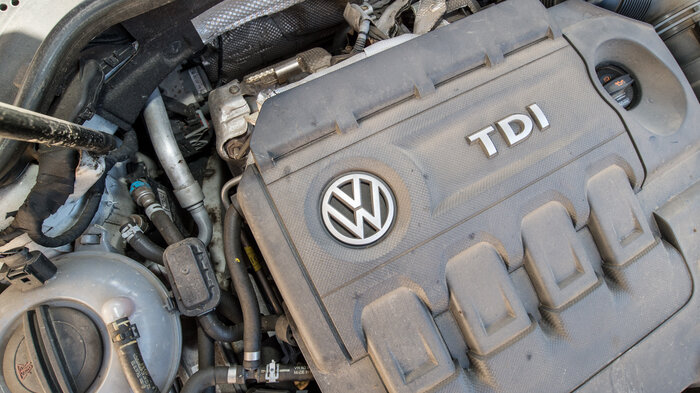Dr. Michael Barr described TOYOTA's software as 'SPAGHETTI.'
The VW Scandal is just the beginning of the unraveling of the FAILURES of Auto Makers to protect consumers.
Republicans have underfunded government agencies that can no longer protect Americans and address the technology.
The programs below are worth listening to. This is why NPR is a valuable resource worthy of your support.
After Volkswagen Pollution Scandal, Can You Trust Your Technology?
The U.S. EPA said stealth software made VW’s 2009-2015 model cars powered by 2.0-liter diesel engines run cleaner in tests than in actual driving. (Jens Meyer/AP)
If you own a Volkswagen diesel, bad news: the German auto giant has been cheating. Researchers at West Virginia University discovered that VW has been equipping millions of its diesel models with software to make the cars pollute less during emissions testing. But on the road, they pollute a whole lot more, in violation of U.S. environmental laws. So, how do we know our computers are telling the whole truth?
Guests
Hiawatha Bray, technology writer for the business section of The Boston Globe. He’s also author of the new book, “You Are Here: From the Compass to GPS, the History and Future of How We Find Ourselves.” He tweets @GlobeTechLab.
Ray Magliozzi, co-host of NPR’s Car Talk, which tweets @cartalk.
The Boston Globe: When German Engineering Is Digital Deception
- “It’s also a warning to everybody who’s ever assumed that the stuff on your computer screen is the gospel truth. Our digital devices can easily be used to manipulate, mislead or flat-out lie to us. Humans have always lied to each other, and always will. But we’re used to sniffing out the crude analog deceptions of our fellow man. When computers skew reality, it can be done with such subtlety, we may never realize we’re being played.”
Mother Jones: The VW Scandal Is Just the Beginning
- “VW used software to put a new spin on an old scam. Wherever there is a test, someone will try to cheat on it. The EPA has banned emissions test “defeat devices” for decades. In 1995, it fined GM $11 million for turning off carbon monoxide controls when the air conditioning was on. Some observers have defended GM, arguing that carbon monoxide pollution is primarily an issue in the winter. But the larger principle—truth in testing—is important.”
NPR: Volkswagen ‘Dieselgate’ Fallout: Germany Tests Cars; Report Sends BMW Shares Down
- “That test was carried out by the International Council on Clean Transportation, which found that the BMW model performed worse than a VW Passat TDI — one of the cars included in the Environmental Protection Agency’s call for a recall. ‘All measured data suggest that this is not a VW-specific issue,’ Peter Mock, the group’s Europe managing director, tells Auto Bild.”
How A Little Lab In West Virginia Caught
Volkswagen's Big Cheat
SEPTEMBER 24, 2015

http://www.npr.org/2015/09/24/443053672/how-a-little-lab-in-west-virginia-caught-volkswagens-big-cheat
